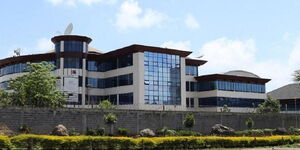Kenya will turn to the financial markets to raise Ksh175.75 billion ($1.36 billion) through a securitised bond next month, part of a wider plan to fund infrastructure projects without incurring unsustainable sovereign debt.
The bond will be issued locally and internationally, with proceeds earmarked primarily for road construction. However, the model is also central to financing the Ksh258.46 billion ($2 billion) expansion of Nairobi’s Jomo Kenyatta International Airport (JKIA).
Transport Cabinet Secretary Davis Chirchir stated that the government will invite international development lenders to participate in the airport project, utilising JKIA’s revenues as the basis for raising funds.
This approach, he noted, shifts the burden from the national balance sheet to the asset itself, reducing the need for direct government borrowing.
Securitisation works by converting an income-generating asset, in this case, the airport’s passenger fees, landing charges, and other revenues, into tradable securities.
These securities are then sold to investors, who are repaid from the future cash flows of the asset rather than tax revenues. This allows infrastructure projects to be funded up front while investors receive a predictable return over time.
By structuring the bond this way, the government can tap capital markets without increasing the public debt ratio, a critical consideration given the country’s rising debt servicing costs.
“Instead of bringing concessions to build the airport, we build the airport that we can concession later,” Chirchir explained, emphasising that the asset-first model offers greater flexibility and long-term value.
For JKIA, the securitised model means the airport’s existing income streams will serve as collateral to attract lenders such as the Japan International Cooperation Agency, China Exim Bank, KfW, the European Investment Bank, and the African Development Bank, with which the government has been in contact.
Once the funding is secured, the government will move to select a contractor for the construction of a second runway and a new terminal building.
If successful, the securitised bond issue could set a precedent for how Kenya funds major infrastructure projects, signalling a shift away from heavy sovereign borrowing towards asset-backed financing that leverages the earning potential of strategic national facilities.
On Monday, the government hinted at plans to construct a new airport in Kenya to replace or upgrade the ageing Jomo Kenyatta International Airport (JKIA).
Transport Cabinet Secretary Davis Chirchir, speaking at the Public-Private Partnership (PPP) Symposium in Nairobi, said the decision aims to address long-standing infrastructural challenges and strengthen Kenya’s position as a key player in the aviation sector.
"We are in the process of building a new one (airport) so that we really become an anchor state that attracts people, so that you have that good feeling of coming in through the airport," he said.












